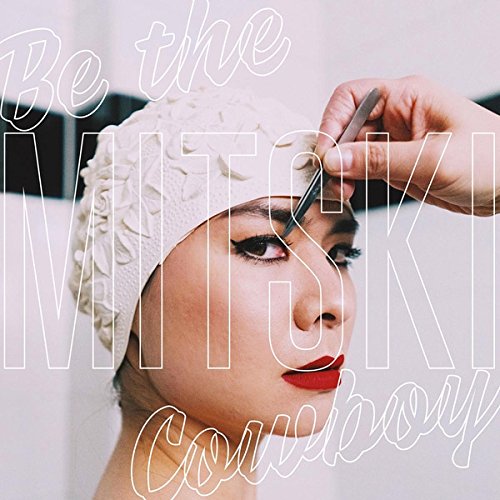The persona also brings a gentle satire to gendered norms that challenge the lyrical clichés of many pop standards. “I know I ended it but why won’t you chase after me?” she pouts on ‘Why Didn’t You Stop Me’, playing on the classic break-up and make-up mentality. “Maybe I’m the same as all those men writing songs of all their dreamings,” she swoons on the Lana Del Rey country-noir of ‘Come Into The Water’. In this context the latter’s sister track, ‘Pink In The Night’, is analysed for any traces of gendered irony when she odes like a Jackie reading teen “I could stare at your back all day” with a poker face.
This ambiguity between persona and personal is part of the beauty of the writing, which has seen her hailed by Iggy Pop as “probably the most advanced American songwriter that I know.” The first person throughout feels natural and the songs aren’t always what they seem, to the extent that all the talk of a persona could easily be there as smokescreen.
That said, there is an undoubtedly a development in her writing. It’s not as radical as the shift between her first two albums (2012’s ‘Lush’ and 2013’s ‘Retired From Sad, New Career In Business’), which were released as student projects during her time at Purchase College’s Conservatory of Music, and her third (2014’s ‘Bury Me At Makeout Creek’). This saw her switching from a jazzy piano style, on which fellow students accompanied her on strings, to learning how to play the easier to tour electric guitar and embracing a more indie-pop direction.
The most obvious shift is the growing use of electronics. This has already been signalled on singles ‘Geyser’ and ‘Nobody’, both of which hint at why Lorde asked her on tour this spring as the support act. The former turns three separate song parts, each fractured by bursts of static, into devotional Lykke Li style electro-pop. The twist being that the object of her devotion is her relationship with music (“I will be the one you need / The way I can’t be without you”).
‘Nobody’, meanwhile, sees her upgrading her piano for a classic slice of disco that marries loneliness with the kind of euphoric chord changes usually found on a boy band record. Yet by the time she’s repeated the title a dozen times it becomes treated and robotic, creating a disorientating feeling that sounds like The Cardigans running out of battery charge.
This use of static and treated sound is part of the wider gendered artifice; of the mechanics being blown on the perfect three-minute pop song (with only two of these fourteen tracks coming in over this magic mark). ‘Me And My Husband’ starts with a sigh, while the swinging country tones of ‘Blue Light’ finds her voice becoming increasingly gauzy before the track ends in a burst of heavily distorted found sound.
This artfulness and satire is nothing new, even if the person fronting the tracks is more assured and assertive than the one fronting ‘Puberty 2’. Likewise, much of the instrumentation offers a direct lineage with her previous recordings.
‘A Pearl’ builds on the indie-pop of her last record, with added blasts of brass. Elsewhere, ‘A Horse Named Cold Air’ and ‘Two Slow Dancers’ reprise her classical piano training. The starkness of the former is accentuated by the briefest use of harmony vocals, which comes with the realisation that this is a rarity throughout. It transpires that the absence of layered vocals was a deliberate move, with Mitski and long-time producer Patrick Hyland wanting “to achieve that campy ‘person singing alone on stage’ atmosphere.”
It’s a solitariness that album closer ‘Two Slow Dancers’ achieves to perfection, its piano line having the mawkish sentimentality of the last dance at a school prom before a woozy synth line enters. It’s a tipsy reminiscence that the lyrics capture as she asks at the start, “Does it smell like a gymnasium in here? / It’s funny how they’re all the same.” She then goes on to explore the idea of people changing within these static environments, concluding that “It would be a hundred times easier if we were young again.”
The track’s sentiment brings a world-weariness to an album that sees her leaving behind an extended teenage period and entering with trepidation the confidence of Adult 1. It’s a confidence that could all be a charade, a move to protect her privacy and a reaction against raw confessionalism. Either way, with ‘Be The Cowboy’ she’s seized control of her image and taken her writing to the next level of detached gender critique and sincerity.
